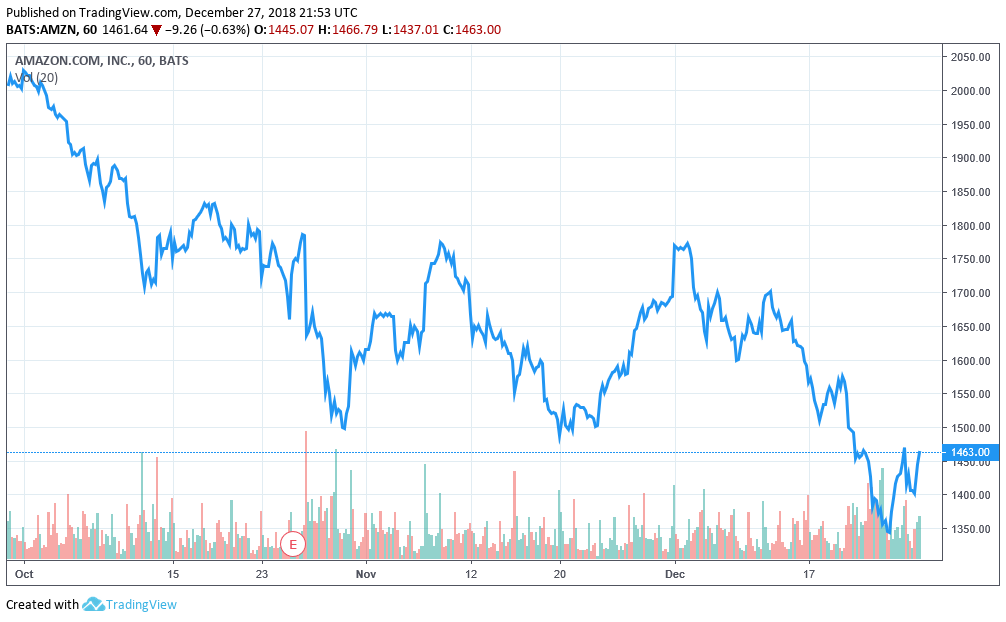Why Amazon is En Route to End Q4 as Worst Quarter Since 2008 Recession

Amazon is now the fourth-largest company in the world behind Apple, Microsoft, and Alphabet (Google) after suffering its worst quarter since the 2008 recession.
Merely three months ago, at the start of the fourth quarter of this year, Amazon was valued at $1 trillion. Currently, as of December 28, Amazon is valued at $680 billion, down $320 billion from its quarterly high.

Losing 32 percent in a three-month span, the fourth quarter of 2018 is officially the company’s worst-performing quarter since the financial crisis a decade ago.
Factors Behind the Amazon Stock’s Struggle
Amazon’s drop in share price is not exclusive to the e-commerce giant. As the main stock indexes of the U.S. market tumbled into a bear market, major companies in the likes of Facebook, Apple, and Microsoft lost over 30 percent on average.
Apple, for instance, which still remains as the second biggest corporation in the U.S. behind Microsoft, lost 35 percent of its valuation since October 3, losing an additional four percent on the day.
But, over the past several weeks, Amazon has struggled to meet the expectations of investors. The growth rate of the firm’s cloud computing unit fell short from the projected rate, and the overall revenue of the company, despite high sales during the Christmas season, was not as high as investors anticipated.
In India, a key market for the e-commerce company, Amazon has also encountered a regulatory roadblock that may disallow the firm from selling certain products like mobile phones in the local market.
Having already spent billions of dollars in establishing its presence in India through the acquisition of a supermarket chain, “E-commerce entities providing marketplace will not directly or indirectly influence the sale price of goods or services and shall maintain level playing field,” the newly released rule by the Indian government read.
The rule was created to help bolster the local e-commerce sector by eliminating the leverage foreign companies have on the market.
Kunal Bahl, the CEO of Snapdeal, optimistically said that the restrictions would create a more competitive and even playing field for all merchants.
He said:
Marketplaces are meant for genuine, independent sellers. These changes will enable a level playing field for all sellers, helping them leverage the reach of e-commerce.
For Amazon and even for Walmart, which spent $16 billion on the acquisition of Flipkart, an e-commerce rival of Amazon, the newly imposed restrictions by the Indian government led to a steep drop in their share prices.
Key For Amazon’s Recovery
Like every other major technology stock in the U.S. market, Amazon suffered a steep sell-off over the past several months, and as investors expect the stock market to continue declining across the first quarter of 2018, Amazon may see extended losses.
The key for Amazon and large corporations in the U.S. market for recovery is to focus on meeting the expectations of its investors through the prioritization of recovering their core revenue sources.
Featured image from Shutterstock. Chat from TradingView .